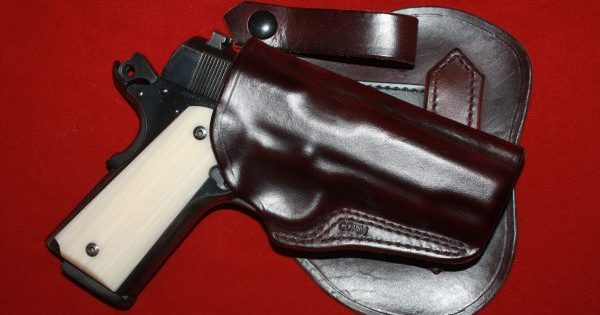
The Concealed Carry Reciprocity Act crossed its first hurdle Wednesday by passing out of the House Judiciary Committee on a 19-11 vote, and it will now head to full consideration on the House floor, possibly before the end of the year.
There was considerable debate in the committee, with anti-gun Democrats proposing several amendments that were rejected along party-line votes. Sponsored by Congressman Richard Hudson (R-NC), the bill had been languishing for months after introduction on Jan. 3.
After the vote, representatives from Prosecutors Against Gun Violence, claimed that police officers are opposed to the measure. Anti-gun Manhattan District Attorney Cy Vance was quoted by CNN asserting, “Police officers think this is a terrible idea. Prosecutors think this is a terrible idea. You should listen to them.”
But frustrated gun owners have been demanding action, and with mid-term elections on the horizon in 2018, Republicans apparently decided it was time to move forward with legislative evidence they deserved the support that gave them the majority one year ago.
Under the bill, states would be required to honor concealed carry permits and licenses from other states, same as they honor driver’s licenses. Rep. Steve King (R-IA) noted more than once that this legislation deals with protection of a civil right.
Chairman Bob Goodlatte noted in a statement that, “The Concealed Carry Reciprocity Act ensures that law-abiding citizens’ Second Amendment right does not end when they cross state lines. Citizens with a state-issued concealed carry license or permit, or individuals who are citizens of states that do not require a permit to carry a concealed firearm, should not have to worry about losing these rights when entering another state that may have different rules and regulations.”
The action came after Ranking Member John Conyers had stepped down amid allegations of sexual harassment. There has been considerable talk about him resigning from Congress.
The gun prohibition lobby has been fighting this legislation with various claims that it would allow people to cross state lines with concealed handguns, without proper training or permits. But Goodlatte had issued a statement to refute such rhetoric.
“I want people to remember that this bill will not arm criminals,” he said. “If someone is a criminal who is prohibited from purchasing or possessing a firearm, nothing in this bill would allow that person to purchase or possess a firearm, let alone carry one in a concealed fashion. That is currently illegal and will remain illegal under this bill.
“I strongly believe the way to combat gun violence is not to infringe the rights of law-abiding citizens,” he continued, “but to enforce the laws against criminals. This bill is about the simple proposition that law abiding Americans should be able to exercise their right to self-defense even when they cross out of their state’s borders. That is their Constitutional right.”
Gun rights groups applauded passage of the bill, which has 213 co-sponsors. All but three of those sponsors are Republicans. Democrats are expected to oppose the measure when it is debated on the House floor.